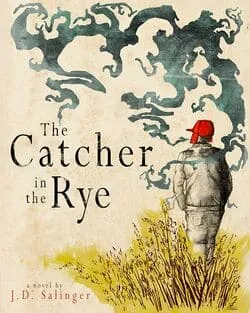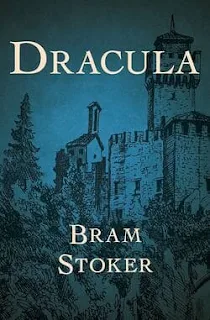25 Timeless Classics Everyone Should Read: A Literary Journey Through the Ages
In an age of endless entertainment options and diminishing attention spans, the enduring power of classic literature remains undiminished. These masterpieces have stood the test of time not merely because they're old, but because they continue to resonate with fundamental human experiences, emotions, and questions that transcend their eras. Here's a curated list of 25 essential classics that every reader should experience at least once in their lifetime.
1. Pride and Prejudice by Jane Austen
Austen's masterpiece of wit and social commentary remains startlingly relevant two centuries after its publication. Through the story of Elizabeth Bennet and Mr. Darcy, Austen explores themes of love, marriage, social class, and prejudice with remarkable insight and sparkling humor. Its enduring appeal lies in its perfect balance of romance and social satire, making it both entertaining and thought-provoking.
Why It's a Classic: Austen's sharp social commentary and timeless themes of love and self-discovery make this novel a beloved classic. Its enduring popularity is a testament to its universal appeal.
2. 1984 by George Orwell
Perhaps more relevant today than ever, Orwell's dystopian masterpiece warns us about the dangers of totalitarianism, surveillance, and the manipulation of truth. Through Winston Smith's rebellion against Big Brother, we confront questions about privacy, truth, and individual freedom that have only become more pressing in our digital age.
Why It's a Classic: Orwell's chilling portrayal of a society under constant surveillance remains eerily relevant today, making it a must-read for understanding the dangers of unchecked power.
3. Moby-Dick by Herman Melville
Far more than just a story about hunting a white whale, Moby-Dick is an epic meditation on obsession, nature, and the human condition. Melville's ambitious novel combines adventure, philosophy, and detailed observations of 19th-century whaling life to create a uniquely American epic that continues to reward careful readers.
Why It's a Classic: Melville's rich symbolism and exploration of themes like obsession, fate, and the human condition make "Moby-Dick" a literary masterpiece.
4. The Great Gatsby by F. Scott Fitzgerald
This perfect jewel of a novel captures the essence of the American Dream and its discontents. Through the story of Jay Gatsby's pursuit of wealth and love, Fitzgerald crafts a devastating critique of the Jazz Age while exploring timeless themes of aspiration, excess, and the corrupting power of wealth.
Why It's a Classic: Fitzgerald's vivid portrayal of the Roaring Twenties and his critique of the American Dream make this novel a timeless classic.
5. Crime and Punishment by Fyodor Dostoevsky
Dostoevsky's psychological thriller follows Raskolnikov, a poor student who commits murder to prove a philosophical theory. The novel's deep exploration of guilt, redemption, and moral responsibility creates a gripping narrative that also serves as a profound philosophical inquiry into human nature.
Why It's a Classic: Dostoevsky's deep exploration of moral dilemmas and the human psyche makes "Crime and Punishment" a foundational work in psychological literature.
6. The Odyssey by Homer
This foundational epic of Western literature has influenced storytelling for millennia. Homer's tale of Odysseus's ten-year journey home combines adventure, mythology, and human drama in ways that continue to resonate. Its exploration of heroism, loyalty, and homecoming has become a template for countless stories.
Why It's a Classic: As one of the oldest works in Western literature, "The Odyssey" is a cornerstone of epic poetry and a timeless tale of adventure and homecoming.
7. Wuthering Heights by Emily Brontë
A dark and passionate tale of love and revenge set on the Yorkshire moors, Brontë's only novel breaks conventional romantic narratives to explore obsessive love and generational trauma. Its complex structure and psychological depth make it a perpetually rewarding read.
Why It's a Classic: Brontë's intense emotional depth and exploration of love, revenge, and the human spirit make this novel a classic of romantic literature.
8. The Catcher in the Rye by J.D. Salinger
Holden Caulfield's voice of teenage alienation and rebellion speaks to each new generation of readers. Salinger's novel captures the universal experience of adolescent anxiety and the search for authenticity in a world of "phonies."
Why It's a Classic: Salinger's portrayal of adolescent angst and the loss of innocence has made "The Catcher in the Rye" a staple of coming-of-age literature.
9. The Picture of Dorian Gray by Oscar Wilde
Wilde's only novel is a fascinating exploration of beauty, morality, and corruption. Through its supernatural plot about a portrait that ages while its subject remains young, it presents a compelling critique of Victorian society while exploring timeless questions about art, beauty, and morality.
Why It's a Classic: Wilde's exploration of beauty, morality, and the consequences of one's actions makes "The Picture of Dorian Gray" a thought-provoking classic.
10. Frankenstein by Mary Shelley
The original science fiction novel remains a powerful meditation on the limits of human knowledge and the responsibilities of creation. Shelley's gothic tale raises ethical questions about scientific advancement that become more relevant with each technological breakthrough.
Why It's a Classic: Shelley's groundbreaking exploration of the ethical implications of scientific advancement and the nature of humanity makes "Frankenstein" a foundational work in science fiction.
11. War and Peace by Leo Tolstoy
This epic of Russian society during the Napoleonic era is remarkable for its scope and psychological insight. Tolstoy's masterpiece combines historical sweep with intimate personal drama, creating a complete world that illuminates both its era and human nature itself.
Why It's a Classic: Tolstoy's sweeping narrative and deep exploration of human nature, history, and philosophy make this novel a monumental classic.
See also: Book Review: Leo Tolstoy – War and Peace (Volumes 1 and 2)
See also: Book Review: Leo Tolstoy – War and Peace (Volumes 3 and 4)
12. To Kill a Mockingbird by Harper Lee
Through Scout Finch's eyes, we witness a powerful story about racial injustice, moral growth, and the courage to stand up for what's right. Lee's novel remains vital for its compassionate exploration of prejudice and justice in American society.
Why It's a Classic: Lee's powerful portrayal of racial injustice and the importance of empathy and moral courage make "To Kill a Mockingbird" a timeless classic.
13. Anna Karenina by Leo Tolstoy
Tolstoy's other masterpiece explores love, marriage, faith, and Russian society through multiple plotlines centered on the tragic figure of Anna. Its psychological depth and social commentary make it perhaps the greatest realist novel ever written.
Why It's a Classic: Tolstoy's intricate character development and exploration of human emotions make "Anna Karenina" a masterpiece of realist fiction.
14. Brave New World by Aldous Huxley
Huxley's dystopia warns us about the dangers of pleasure and conformity rather than pain and oppression. Its vision of a society controlled through happiness and distraction often seems more prophetic than Orwell's surveillance state.
Why It's a Classic: Huxley's prescient exploration of a society controlled by technology and consumerism makes "Brave New World" a relevant and thought-provoking classic.
15. Beloved by Toni Morrison
Morrison's masterpiece confronts the horrors of slavery through a ghost story that explores how trauma echoes through generations. Its powerful blend of historical truth and supernatural elements creates an unforgettable meditation on memory, guilt, and healing.
Why It's a Classic: Morrison's powerful portrayal of the legacy of slavery and the human capacity for healing makes "Beloved" a profound and essential read.
16. The Grapes of Wrath by John Steinbeck
This epic of the Great Depression follows the Joad family's exodus to California, creating an enduring portrait of economic hardship and human dignity. Steinbeck's compassionate exploration of social justice and human resilience remains deeply relevant.
Why It's a Classic: Steinbeck's vivid portrayal of the struggles of the working class and the resilience of the human spirit makes "The Grapes of Wrath" a classic of American literature.
17. One Hundred Years of Solitude by Gabriel García Márquez
Márquez's magical realist masterpiece follows seven generations of the Buendía family, creating a mythical vision of Latin American history. Its blend of the magical and the real captures something essential about human experience and memory.
Why It's a Classic: Márquez's innovative use of magical realism and his exploration of themes like memory, time, and solitude make "One Hundred Years of Solitude" a literary masterpiece.
18. The Adventures of Huckleberry Finn by Mark Twain
Twain's masterpiece uses the journey of Huck and Jim down the Mississippi to explore friendship, freedom, and moral growth. Its vernacular narrative voice and critical view of American society were revolutionary for their time and remain powerful today.
Why It's a Classic: Twain's satirical critique of antebellum society and his exploration of themes like freedom and morality make "The Adventures of Huckleberry Finn" a classic of American literature.
19. Les Misérables by Victor Hugo
This epic of justice, redemption, and social reform in 19th-century France creates an unforgettable cast of characters centered on the reformed criminal Jean Valjean. Hugo's passionate advocacy for social justice speaks across centuries.
Why It's a Classic: Hugo's sweeping narrative and exploration of themes like justice, redemption, and the human spirit make "Les Misérables" a timeless classic.
20. The Brothers Karamazov by Fyodor Dostoevsky
Dostoevsky's final novel is a philosophical masterpiece exploring faith, doubt, and moral responsibility through the story of three brothers. Its profound psychological insights and spiritual questioning make it a cornerstone of modern literature.
Why It's a Classic: Dostoevsky's deep exploration of philosophical and moral questions makes "The Brothers Karamazov" a foundational work in literary philosophy.
21. Dracula by Bram Stoker
More than just a horror story, Stoker's novel explores Victorian anxieties about sexuality, immigration, and modernity through its tale of an ancient vampire in modern London. Its influence on popular culture remains immense.
Why It's a Classic: Stoker's groundbreaking exploration of horror and the supernatural makes "Dracula" a foundational work in gothic literature.
22. Jane Eyre by Charlotte Brontë
This revolutionary bildungsroman follows its strong-willed heroine's moral and romantic education. Brontë's exploration of female independence and passionate love created a new template for the novel.
Why It's a Classic: Brontë's exploration of themes like love, independence, and the search for belonging makes "Jane Eyre" a classic of romantic literature.
23. The Iliad by Homer
The original war story explores honor, rage, and human mortality through the lens of the Trojan War. Its unflinching look at both the glory and horror of war remains unsurpassed.
Why It's a Classic: As one of the oldest works in Western literature, "The Iliad" is a cornerstone of epic poetry and a timeless tale of war and heroism.
24. Madame Bovary by Gustave Flaubert
Flaubert's precise portrayal of Emma Bovary's romantic delusions and tragic fate creates a devastating critique of bourgeois society. Its style revolutionized the novel while its insights into human nature remain painfully accurate.
Why It's a Classic: Flaubert's realistic portrayal of provincial life and his exploration of themes like disillusionment and the search for meaning make "Madame Bovary" a classic of realist fiction.
25. Great Expectations by Charles Dickens
Pip's journey from humble beginnings to gentleman status creates a perfect blend of social criticism and personal drama. Dickens's exploration of class, ambition, and redemption captures both Victorian England and timeless human experiences.
Why It's a Classic: Dickens' vivid portrayal of Victorian society and his exploration of themes like ambition, class, and morality make "Great Expectations" a timeless classic.
These classics have earned their status not through mere longevity but through their continued ability to illuminate the human experience. Each offers unique insights into our shared humanity while pushing the boundaries of what literature can achieve. Whether you're reading them for the first time or returning to them years later, these works continue to reward careful attention and thought.

































